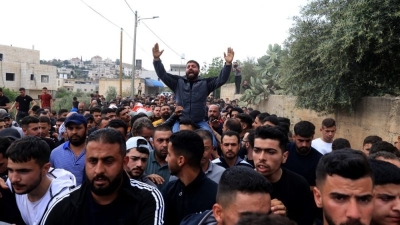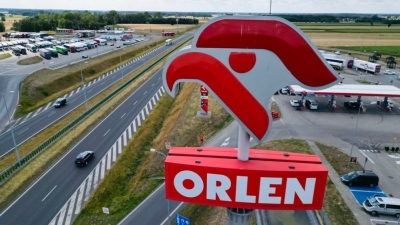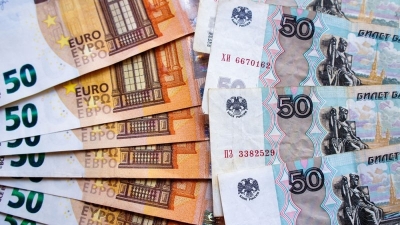The Brief – The Belarus exception

The West has often been misguided about Belarus, just as it has been about Russia, but Vladimir Putin has also miscalculated in his plans to create a string of vassal states at Russia’s Western borders, modelled on Minsk.
Fifteen years ago, the Western press used to call Alexander Lukashenko “Europe’s last dictator” because of the totalitarian model that survived in his country after the collapse of the USSR.
Later, Lukashenko hosted the Minsk talks on Ukraine, attended by Angela Merkel and Francois Hollande, and the West stopped referring to him that way.
Tables turned one more time, and Lukashenko played the villain again when Belarus hosted the Russian troops which launched the attack on Kyiv on 24 February 2022.
Today, pundits say that if a second Russian attack on Kyiv takes place, such a scenario is likely to happen again from the territory of its vassal, Belarus.
And a very stable vassal it is. Belarus President Lukashenko said he would run for a seventh term in 2025. At 69, this is still feasible, and if nothing changes in Russia, he could do several more terms.
When Viktor Yanukovich was the president of Ukraine, the West failed to understand that he was overseeing a Russian plan to transform independent Ukraine into a vassal of Russia.
However, many Ukrainians realised the nature of these plans and opposed them by taking to the streets, leading to the Maidan Uprising in November 2013.
Of course, Putin’s Russia called the. uprising a “coup” orchestrated by the US embassy in Kyiv.
The goal of Putin’s unsuccessful invasion of 24 February 2022 was to eliminate (even physically) Ukraine’s leadership and political elite and replace it with a pro-Russian “fifth column”.
While Putin made a big mistake in assuming that by invading Ukraine, he could still achieve his goal of turning it into another Belarus, it was part of a wider strategy.
For many years, Putin has sought to transform most of the countries at Russia’s eastern borders into vassal countries in the vein of Belarus.
As a Bulgarian, I noticed many years ago Russia’s attempts to put my country under Moscow’s economic control, despite its EU membership, mostly thanks to Russia’s monopoly over gas supply, oil supply and refining, and nuclear energy.
This was happening in parallel with massive propaganda, with many Russians buying real estate in Bulgaria and Moscow cultivating a pro-Russian political elite ready to jump into power.
After Russia’s full-scale invasion of Ukraine, Bulgaria has reformed its energy policy and made obstacles to Russian propaganda, although some politicians are still visiting the Kremlin, hoping for “better times”.
What Putin evidently fails to understand is that the Belarus model cannot function in countries that have experienced democracy and a free market economy and where the KGB, the notorious Soviet-era security service, no longer exists.
Indeed, the political police in Belarus is still called the KGB and is no different from the Soviet instrument for political repression. Even in Russia, the KGB changed its name, although not its nature.
Moreover, many now understand the totalitarian character of the Russian regime, which is little different from that in Belarus.
In the so-called Belarus parliamentary elections on Sunday, most candidates represented the four officially registered parties: Belaya Rus, the Communist Party, the Liberal Democratic Party, and the Party of Labor and Justice.
Those parties all support Lukashenko’s policies after about a dozen other parties were denied registration last year.
The same thing happened in the run-up to the Russian presidential elections: The anti-war candidate Boris Nadezhdin was denied registration, and the most prominent opposition politician, Alexei Navalny, was liquidated in a Gulag-type prison.
Belarus will most likely remain the exception in Putin’s attempts to create a string of puppet states.
Even in Belarus, there is strong opposition that was very vocal after a sham election in 2020, but not only has the totalitarian regime taken harsh measures since, but it is also crystal clear that Russia would intervene if there were any attempt at regime change.
Belarusians know that change will come only after the regime in Moscow collapses, while the Belarusian elite in exile is busy preparing the country’s future.
The Roundup
As heads of state travel to Paris for Monday’s (26 February) extraordinary summit on Ukraine, Slovak Prime Minister Robert Fico slammed the West’s broader strategy towards the conflict, claiming that it had opted for a “total escalation of tensions”.
Germany will change its CO2 storage law to facilitate gas transport and is eyeing carbon capture in industry and the power sector while taking steps to become an emission-negative country past 2050.
European lawmakers are set to debate an amended version of the driving licence directive on Tuesday, with Parliament’s decision to change driving licence rules still mired in a debate over whether to impose mandatory medical checks on licence holders.
As the European Parliament works on revising the regulation on microplastics, EU lawmakers and NGOs travelled outside Brussels to see for themselves the scale and impact of plastic pellet pollution on site.
Look out for…
- European Parliament plenary Monday – Thursday.
- Foreign Affairs Council (Trade), Sunday – Thursday.
- Agriculture and Fisheries Council on Monday.
- Enlargement Commissioner Olivér Várhelyi in Montenegro Tuesday-Wednesday



